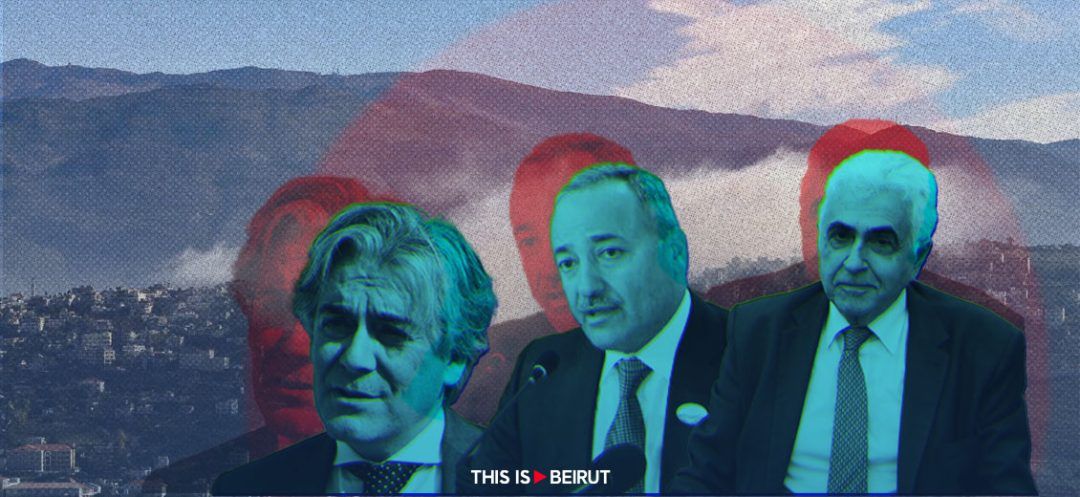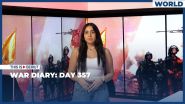- Home
- War in the Middle East
- Gaza and Southern Lebanon: A Dual-Front Warfare?

“The US is currently exerting pressure to deter Israel from invading Rafah, but this is leading to an escalation on the Lebanese front,” asserted retired General Khaled Hamadeh.
Lebanese citizens are holding their breath, closely scrutinizing every development in South Lebanon, where the war raging between Israel and Hezbollah could take a new turn. Israeli airstrikes have significantly intensified in recent times, particularly in-depth, sparking fears of a widening of the war’s scope. Despite the UN Security Council's adoption of an “immediate ceasefire” in Gaza on Monday, hostilities persist and are escalating, both in the besieged strip and on the Lebanese front.
It is important to recall that within less than 24 hours, 16 deaths were reported in Israeli airstrikes in South Lebanon. Four individuals were killed in a raid on a coffee shop in Naqoura on Wednesday night, with five more in a deadly strike on a house in Tayr Harfa. On Tuesday night, an Israeli airstrike resulted in seven deaths among responders at an Islamic emergency and relief center in Hebbariyeh. Moreover, a Hamas official narrowly avoided a drone attack in western Bekaa on Sunday, marking the first incident of this kind in the region since October 8, 2023. Israeli warplanes raided a four-story building in Baalbeck late on Saturday night to Sunday in the al-Asseera neighborhood, near the residence of a Hezbollah official, Hassan al-Lakkis.
In this context, Israeli Prime Minister Benjamin Netanyahu proclaimed the victory against Hamas “within reach,” estimating that “an assault on Rafah, the last bastion of Hamas, is imperative,” and pledging to “eradicate it.” Concurrently, numerous Israeli media outlets suggest that “the Israeli army will enter Lebanon following the conclusion of the operation in Rafah.” On the other hand, the commander of Israeli forces in the north, Uri Gordin, declared on Wednesday that “Israeli forces were poised to act along the Lebanese border.”
It is significant to note in this context that Israelis have recently endeavored to reinforce their northern front by deploying a “Mountain Brigade,” named Heharim, to the sectors of Mount Hermon and Mount Dov, along the southeast border with Lebanon. This deployment aims to “improve their readiness for warfare on the northern front, as well as in other regions where combats endure,” as stated by Israeli army spokesperson Daniel Hagari.
An Open War of Attrition
Former Lebanese Minister of Foreign Affairs Nassif Hitti was contacted by This is Beirut and estimated that “it would be highly difficult for Israel to carry out two simultaneous operations against Rafah and in southern Lebanon.” The latter aims to push back the pro-Iranian group to a safer distance from its border. He emphasized that “the Hebrew State finds itself trapped in its own tactics.” This reflects an “open war of attrition (both in Gaza and southern Lebanon) that could extend over time without resulting in a victory,” according to Hitti who does not dismiss the possibility of a “real escalation if a sustainable ceasefire is not achieved.”
The former diplomat also warned that “a potential invasion of Rafah would result in a second Nakba, without achieving a favorable political outcome, but rather worsening and radicalizing the situation.” With the Israeli army unable to embroil in a ground invasion, it faces pressure from the Americans, who recommend instead conducting surgical strikes involving strategic targeted attacks. Hitti went on to say that “Israel is ensnared in its own trap.”
The former diplomat also called for “a sustainable ceasefire in Gaza and southern Lebanon,” emphasizing that “the UN Security Council should exert pressure on countries capable of influencing Israel's policy and immediately initiate negotiations under UN auspices to address the issue of the 6 contentious points along the southern border of Lebanon.” “Therefore, it falls upon the Lebanese State to negotiate this agreement with a full deployment of the Lebanese army on the front,” he said, before adding that “the implementation of UN Security Council Resolution 1701 may not be imminent, but it should be implemented gradually and the first step is to halt hostilities.”
A New Chapter in the Conflict
Retired General and Director General of RDCS, the Regional Forum for Consultancy and Studies, Khaled Hamadeh, noted that “the conflict between Hezbollah and Israel has entered a new phase,” and highlighted the “legitimate concerns about a potential secondary escalation.”
He explained to This is Beirut that “the circumstances surrounding these strikes, including the upcoming US presidential elections, are influencing American decisions. The reluctant negotiations in Gaza and the US' insistence on separating operations in Lebanon from those in Gaza have created favorable conditions for Netanyahu's intensified attacks on the infrastructure of the pro-Iranian Shiite faction.”
“At present, the US is exerting pressure to prevent Israel from invading Rafah, but this is resulting in an escalation on the Lebanese front,” argued General Hamadeh, estimating in this regard that “what Netanyahu cannot fulfil in Gaza, he may fulfil in Lebanon in the near future.” Additionally, it is noteworthy to note within this framework that the US President's special envoy, Amos Hochstein, emphasized during his recent visit to Beirut that “a truce in Gaza does not automatically translate to a truce in Lebanon.”
However, General Hamadeh argues that “it is unlikely Israel will be compelled to conduct two simultaneous military operations,” noting that “if a limited military operation continues in Gaza and if conditions in the US allow it, such (simultaneous) action probably won't occur prior to the American presidential elections.” General Hamadeh further estimates that “the issue is not the Hebrew State’s capability to manage both fronts, but rather the lack of American diplomatic activity to reach a definitive agreement on the Israeli border.” The general adds, “We could be entering a phase of open warfare, different from that of 2006, where objectives not achieved through diplomacy might be achieved through military means.”
Meanwhile, UNIFIL has expressed concern over the escalating violence between Lebanon and Israel.
In a communiqué issued on Thursday, UNIFIL underscored that “it is imperative for this escalation to come to an immediate halt,” urging “all parties to disarm and embark on endeavors towards a sustainable political and diplomatic solution.” The peacekeeping forces (Blue Helmets) affirmed their “readiness to assist in this process through every available means, especially convening a tripartite meeting upon request from the concerned parties.”
When contacted by This is Beirut, UNIFIL spokesperson Andrea Tenenti stressed that “an escalation, combined with miscalculations, could lead to a broader conflict, which we are striving to prevent at all costs.” When asked about UNIFIL's role in the event of a widespread upheaval, Tenenti reiterated that “the interim force, stationed at the border since 1978, has never vacated its position or wavered in its commitments to the Lebanese army and local communities.” Tenenti concluded, “Should the war expand, UNIFIL’s fate lies in the hands of the UN Security Council, but for now, the mission remains fully deployed and will stay that way.”
Read more




Comments